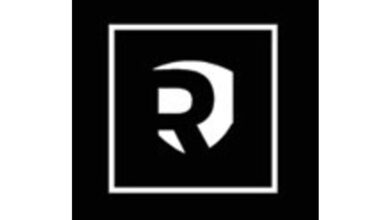Will New Fed Cyber Security Program Rival Energy Star In Popularity?

Kitchens with connected appliances will benefit from new U.S. Cyber Trust Mark certification.
When was the last time you bought a major appliance? For me, it was August 2023, when the control panel of my 13-year-old washing machine stopped working. I only had one criterion for a replacement machine besides fitting into my compact laundry closet: My new washer would need to be Energy Star rated.
That’s apparently a popular choice. Since 1992, when the U.S. Environmental Protection Agency debuted the program, nearly 90% of American households recognize the label, and 45% knowingly chose products with the certification in the last year, according to the site’s Impact page.
Will the new U.S. Cyber Trust Mark label have a comparable impact? If so, how long will it take? I know it will be a logo I’ll be looking for when shopping for future smart home purchases. You might want to consider it too, especially if you’re enthusiastic about all the technology enhancements being offered.
Program Background
The Cyber Trust Mark program was announced by the White House in a July 2023 press release, and will be rolling out by the end of this year. Like Energy Star, its goal is to guide consumers in making educated choices – in this case, by letting them know that a certified smart home-enabled product is resistant to hacking. This will be a voluntary labeling program for corporate partners, (like Energy Star), run by the Federal Communications Commission with insights from the National Institute of Standards and Technology.
FCC chairwoman Jessica Rosenworcel observed in a March 14, 2024 statement that these “smart devices make our lives easier and more convenient. They mean we can watch what we want, turn down the heat when we are away, check who is at the front door when we are not home, and keep tabs on our health at all times.” Keeping tabs on the nursery with baby monitors is one of the highest uses of smart home technology, she added.
“You want to know when you bring that monitor into your house to watch your newborn, that connection is secure and not going to invite any malware or malicious activity into your home.” Every device connected to the Internet is an attack entry point that can compromise safety, the FCC executive warned. She compared the new IoT assurances of security to Energy Star’s assurances for efficiency. And in our increasingly online lives, those assurances are very much needed!
Security Demand
According to numerous consumer studies – summed up by this January 2024 TechNewsWorld headline: “Paranoia in the Home: 1 in 3 Americans Worried About Their Smart Gadgets Being Hacked” – many would-be purchasers, interested in their many benefits, are still leery about technology potentially compromising their privacy and security. This certification will likely be well-received by the public, once they learn about it.
A wide range of eligible home-related categories, including security cameras, garage door openers, and the afore-mentioned internet-connected appliances and baby monitors can be certified (by accredited labs) and labeled with a new logo and QR codes for more information.
A program like this makes tremendous sense right now, particularly with smart home technology’s ability to enhance aging in place and sustainability, two crucial imperatives with growing proportion of older Americans in our society, and with hard-hitting climate challenges.
Program Reactions
What do industry professionals think about this new initiative for their consumer clientele? I reached out to several for their reactions, including one of the manufacturers mentioned in the White House’s roll-out release. “We’ve been enthusiastic supporters of the FCC’s efforts to develop the Cyber Trust Mark program,” comments John Taylor, senior vice president of LG Electronics USA. “And we were pleased to see the FCC finalize the initial set of rules for this effort in March,” he added. Taylor points to the confidence the program can bring to consumers, and the encouragement that consumer interest can spur additional manufacturers to participate.
Calvin Ruan, CEO of Hauslane, a manufacturer of kitchen ventilation products, is looking forward to participating in the program, he says. The firm’s next generation of connected under-cabinet range hoods will be submitted for certification. The benefits he anticipates include “Increased trust from consumers related to product safety and personal information security” and “peace of mind.” Ruan is excited to see “proactive measures being taken to ensure the cyber safety of consumers and looking forward to the growth of protection amongst IOT devices,” he adds.
Appliance and fixtures retailer AjMadison will be selling Cyber Trust Mark labeled products when available, shares editorial director Jessica Petrino Ball. “Nearly 70% of home appliances have smart capabilities,” she notes, adding that her sellers often get asked by consumers about cyber security issues. Once the program is up and running, they look forward to directing consumers to participating products, she shares.
“I think knowledge of the program will be relevant for both homeowners and industry professionals. Many of our pro partners report having conversations with homeowners when planning smart home infrastructure,” Ball reports.
Austin-based interior designer Maria Martin has those conversations with clients regularly. Her tech savvy homeowners are already confident in their knowledge and safety, she says. Others less so, especially her 70 and older clients. “The older community is more fearful and anxious because of their lack of knowledge and first-hand experience.”
Martin anticipates the Cyber Trust Mark program becoming popular with the public, given the distressing frequency of cyber events. “This will definitely become a comfort indicator for a buyer. It will also become a branding feature for companies to enlist trust.” How long that takes will depend on the frequency and public exposure of privacy breaches and cyber-hacking events, she predicts.
Modesto, California-based interior designer Wendy Glaister works on numerous kitchen and bathroom projects with smart home features too, and regularly brings up cyber security – as well as Energy Star considerations – as part of her specification process. When asked if she will also discuss and specify this new program’s offerings with clients, she responds, “When products with the Cyber Trust Mark program seal are more widely available, we certainly will.” She sees it being helpful, including for her older clients who are less comfortable with smart home technology.
CEO Josh Christian’s Home Technology Association certified professional members specify and install smart home products every day and would likely have read about the new program through articles in CEPro, a leading trade publication, he says. He sees it as a plus, but notes that the smart home systems specified by integrators like his members have their own security built in, (unlike many mass market offerings). “High net worth clients are very concerned about security,” he comments.
For typical consumers who might only seek a few smart home products on their own, rather than working on a larger project with a technology consultant, the new program can definitely be a benefit. “If market research shows that consumers are purchasing/preferring products that have the mark vs. products don’t have it, it will pressure more companies to adopt the mark,” Christian predicts. That in turn will offer wider selections for them to choose from.
Last Words
Ball sees the Cyber Trust Mark program gaining the type of recognition that Energy Star currently enjoys fairly rapidly. “Assuming that the government approves cybersecurity labeling requirements by the end of 2024, I would expect in-market consumers to have a basic awareness of the program within the next two years and more mainstream knowledge of the program in the next five years.”
Designer Glaister is hopeful too, but somewhat hesitant at the same time: “When I consider how the U.S. government’s own computers can be hacked by foreign entities, I can’t imagine a homeowner level system being more secure!” (She may have a point.)
I’m no tech savant, but I imagine that a connected range hood or refrigerator is probably simpler to secure than a massive database of personnel records or infrastructure components. At any rate, here’s hoping Washington has its own beefed up internal cyber trust mark initiative. I’d hate for my future smart water filtration system to be challenged by a reservoir hack!
***
Author’s Note: All industry pro interviews were conducted by email in June 2024.



